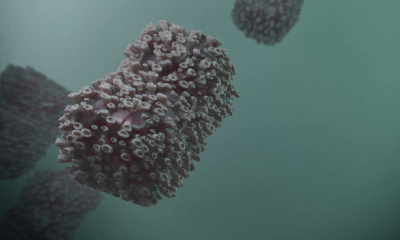Pregnant moms who get vaccinated against whopping cough are doing their kids a favor. Scientists recently found that newborns can benefit from vaccination against the highly contagious respiratory tract infection during pregnancy.
A study by researchers from the Centers for Disease Control and Prevention (CDC) published in the journal JAMA Network Monday investigated the incidence of whopping cough or pertussis in U.S. infants before and after the implementation of maternal vaccination.
The team wanted to find out if the Tdap vaccine, designed to prevent tetanus, diphtheria and pertussis, helped lower the incidence of pertussis among newborns and infants younger than 2 months when administered during pregnancy.
The researchers examined data from 57,460 pertussis cases reported in infants younger than 1 year between 2000 and 2019. After their analysis, they found that the incidence of pertussis in infants below 2 months declined when moms got the Tdap vaccine during their pregnancies.
“These findings suggest that maternal Tdap vaccination is associated with a reduction in pertussis among infants younger than 2 months, the strategy’s target age group,” the team wrote.
The findings support the public health agency’s recommendation for Tdap vaccine administration during weeks 27-36 of pregnancy to yield better results once the babies are born.
“Getting Tdap during pregnancy offers infants the best protection before they are old enough to receive their whooping cough vaccines,” Dr. José R. Romero, CDC’s National Center for Immunization and Respiratory Diseases director, said in a news release.
He continued, “This protection is critical because those first few months are when infants are most likely to have serious complications, be hospitalized, or die if they get whooping cough.”
Pertussis, a highly contagious infection in the respiratory tract, is characterized by a severe hacking cough followed by a high-pitched inhalation of air that makes the “whoop” sound. Once considered a childhood disease, the condition primarily affects children who haven’t been completely vaccinated and teenagers and adults whose immunity against the bacteria has faded, according to Mayo Clinic.
Deaths related to pertussis are rare, but infants are at risk if they aren’t vaccinated. This led the U.S. to implement the maternal vaccination strategy in 2011 to diminish the fatality risk of whooping cough in infants. Based on scientific data, Tdap vaccination prevents more than three in four cases of pertussis infection in infants below 2 months.
“Everyone who is pregnant should feel confident in knowing that the Tdap vaccine is safe and effective,” Dr. Linda Eckert, American College of Obstetricians and Gynecologists’ liaison to CDC’s Advisory Committee on Immunization Practices, said.
“Knowing that Tdap vaccination during pregnancy protects nine in 10 babies from being hospitalized with whooping cough, I strongly recommend this vaccine to all my pregnant patients for their peace of mind and for their family’s health and well-being,” she added.
















